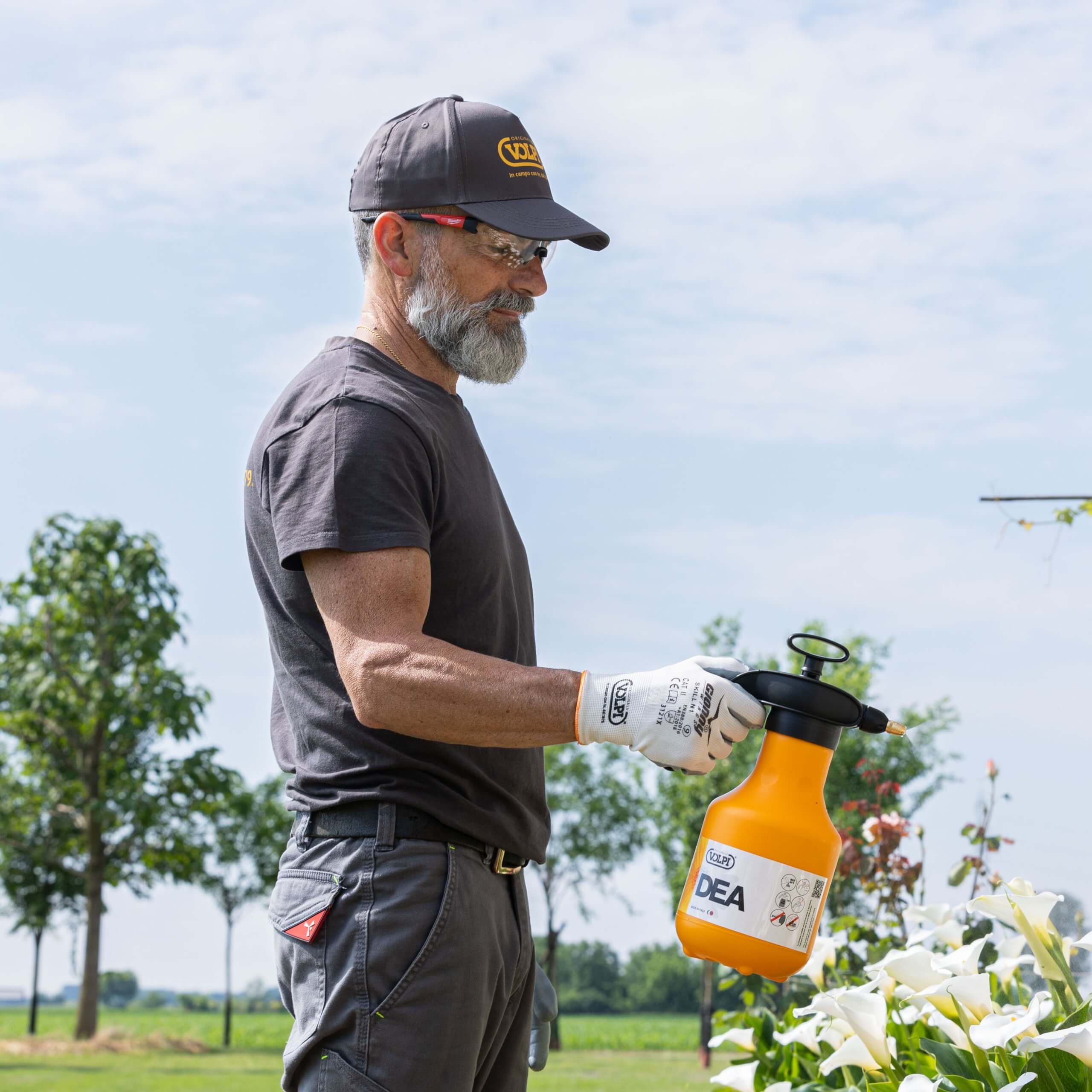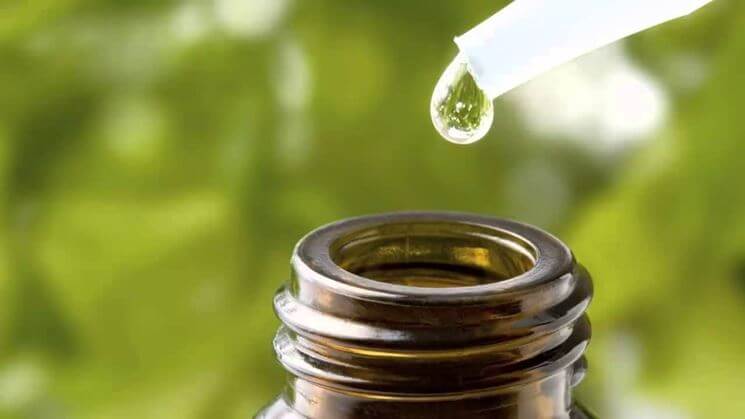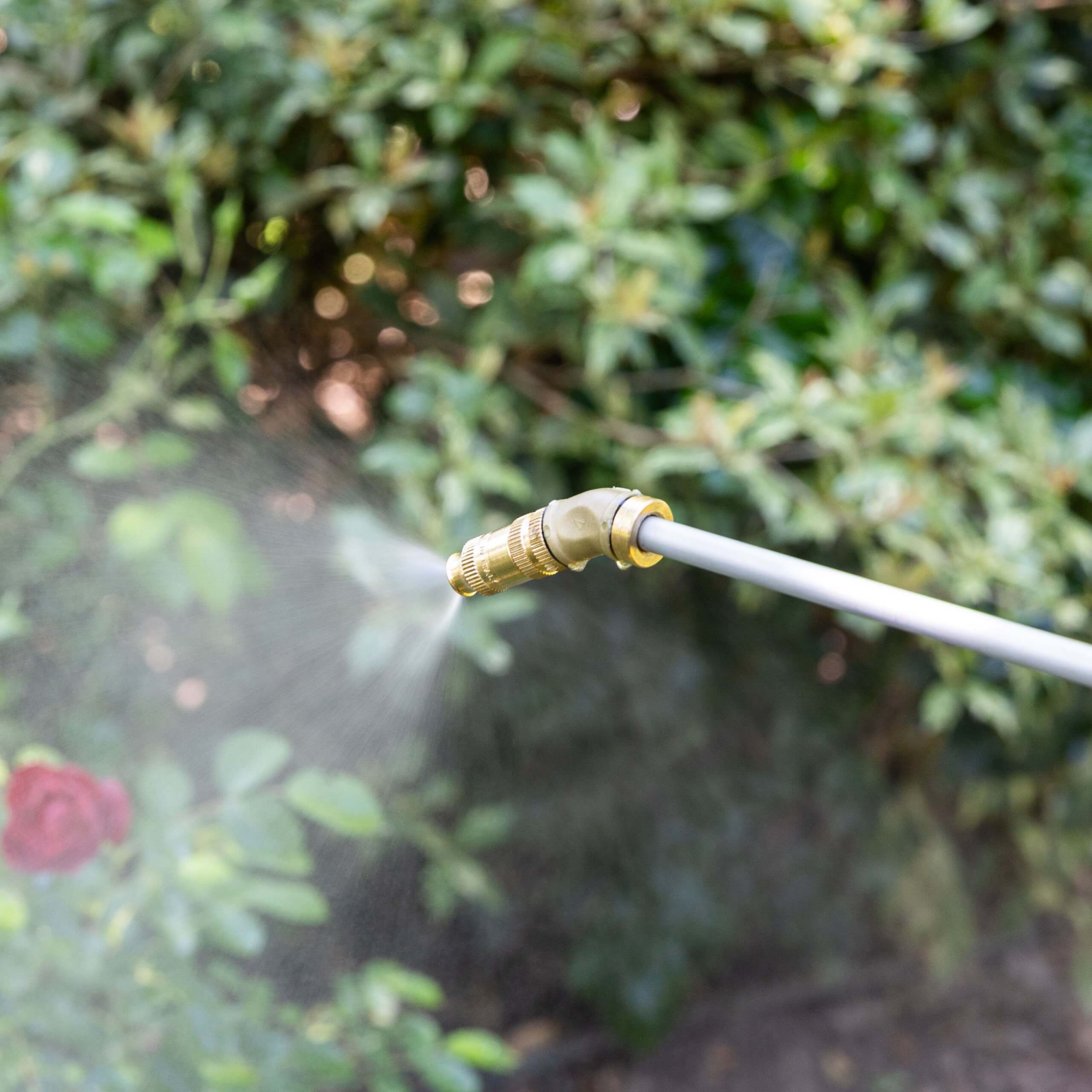When a garden is infested with mosquitoes and insects, the first step is to reduce the existing population with treatments. In this article, we will focus on natural mosquito repellents, which, although slightly less powerful than chemical ones, are safer for the environment, humans, and animals.
We will also provide some information on chemical treatments for those who prefer a quicker and more effective solution. For each type of treatment, we will indicate the correct proportions to put in the sprayer to achieve the best results.

Pyrethrum: The Natural Insecticide for Mosquitoes and Insects
Pyrethrum is one of the most effective natural insecticides against mosquitoes and other insects. It is extracted from the flowers of the Tanacetum cinerariifolium plant.
Pyrethrum acts very quickly, paralyzing and killing insects on contact. It is particularly effective against flying insects (such as flies, mosquitoes, and tiger mosquitoes) and crawling insects (such as cockroaches and ants).
However, it is important to note that pyrethrum is harmful to bees, so it should be used with caution in the presence of flowers or in gardens frequented by these pollinating insects.
How to apply pyrethrum:
Mosquito treatment with 100% natural pyrethrins:
If you are using 100% pure pyrethrum, dilute 10 ml of concentrated pyrethrum (easily found online or in garden stores) in 1 liter of water.
Use a 2-liter sprayer to apply the solution on seedlings, ornamental plants, and potted plants. This solution is ideal for quick, targeted mosquito control in gardens not frequented by bees.
Treatment with Pyrethrum and Other Compounds:
If you opt for a treatment that also includes other chemical compounds, dilute 10 ml of synthetic pyrethrum in 1 liter of water, adding 5 ml of mineral oil to increase the persistence of the effect.
This type of treatment is suitable for more infested areas, such as hedges or damp walls, and can be applied with a 4lt sprayer , depending on the size of the area to be treated.
Neem Oil: A Natural Mosquito Repellent for Flowering Areas
When the mosquito problem is localized in flowering areas or gardens frequented by bees, neem oil is a less aggressive but still effective solution. Neem oil is safe for beneficial insects, such as bees, and still has a repellent effect on mosquitoes.

How to apply neem oil in the garden:
Neem oil treatment for flowering areas:
For an effective solution, dilute 20 ml of concentrated neem oil in 1 liter of water. If you want better solubilization, add 5 grams of soft potassium soap.
Use a 2lt sprayer to apply the treatment to leaves, flowers, and other plants, preferably in the evening, to avoid damaging the plants due to the hot sun.
Mosquito Treatment with Neem Oil for Larger Gardens:
If you need to treat a larger area, use a 6lt sprayer: For 5 liters of water, add 100 ml of neem oil and 25 grams of potassium soap. Repeat the treatment for 2-3 consecutive days for best results.
Chemical mosquito repellents: The ultimate mosquito control
If the problem is particularly severe and natural remedies are not enough, chemical mosquito treatments may be a good alternative. When applied correctly, these products are undoubtedly faster and more effective at eliminating mosquitoes from the garden.
Chemical agents for mosquito control
Treatments with synthetic insecticides
For a synthetic pyrethrum-based chemical insecticide, dilute 10 ml of the product in 1 liter of water. If the product you choose has a higher concentration, reduce the amount of product to 5 ml per liter of water. Use a 10lt sprayer from Volpitech Line to treat large areas, such as hedges and bushes.
Mosquito treatment with Fipronil or Deltamethrin:
In case of severe infestations, fipronil or deltamethrin can be used. Dilute 2-3 ml of product in 1 liter of water. These products are very persistent and also work on more resistant insects. Use a 7lt sprayer to apply the product to walls, floors, and other surfaces where insects may hide.
Insecticide sprayers: The essential tool for mosquito control in the garden

Regardless of the type of treatment chosen, a sprayer is essential for achieving uniform distribution of the product. These tools are designed to ensure precise application, avoiding waste and reducing the risk of overexposure to the product.
- For natural treatments (such as pyrethrum and neem oil), a sprayer equipped with a small tank is perfect for small gardens or terraces.
- For larger areas, such as gardens with hedges or shrubs, a knapsack sprayer is ideal.
- If you need to treat very large areas or apply more persistent chemicals, a professional battery-powered sprayer will help you cover more surface area in less time.